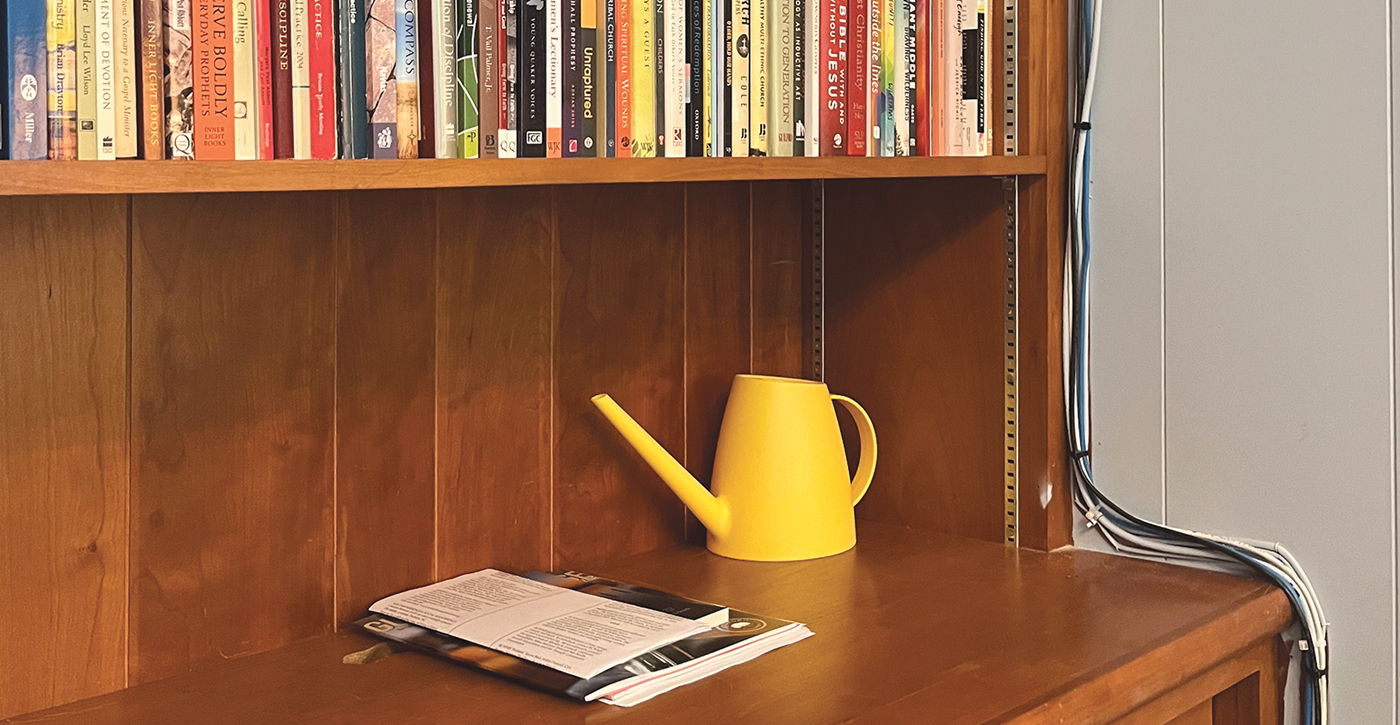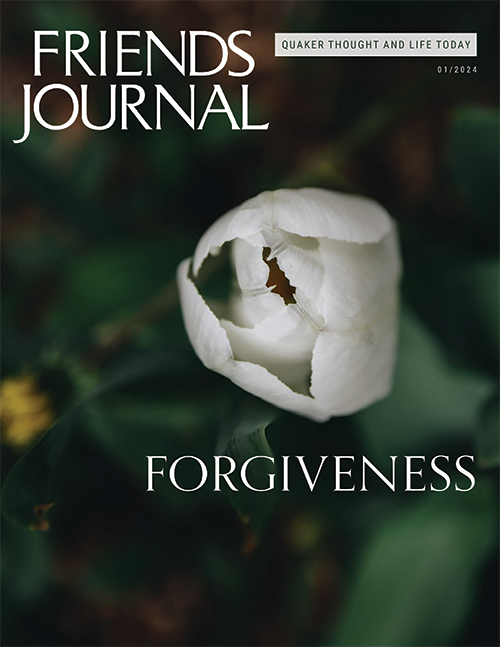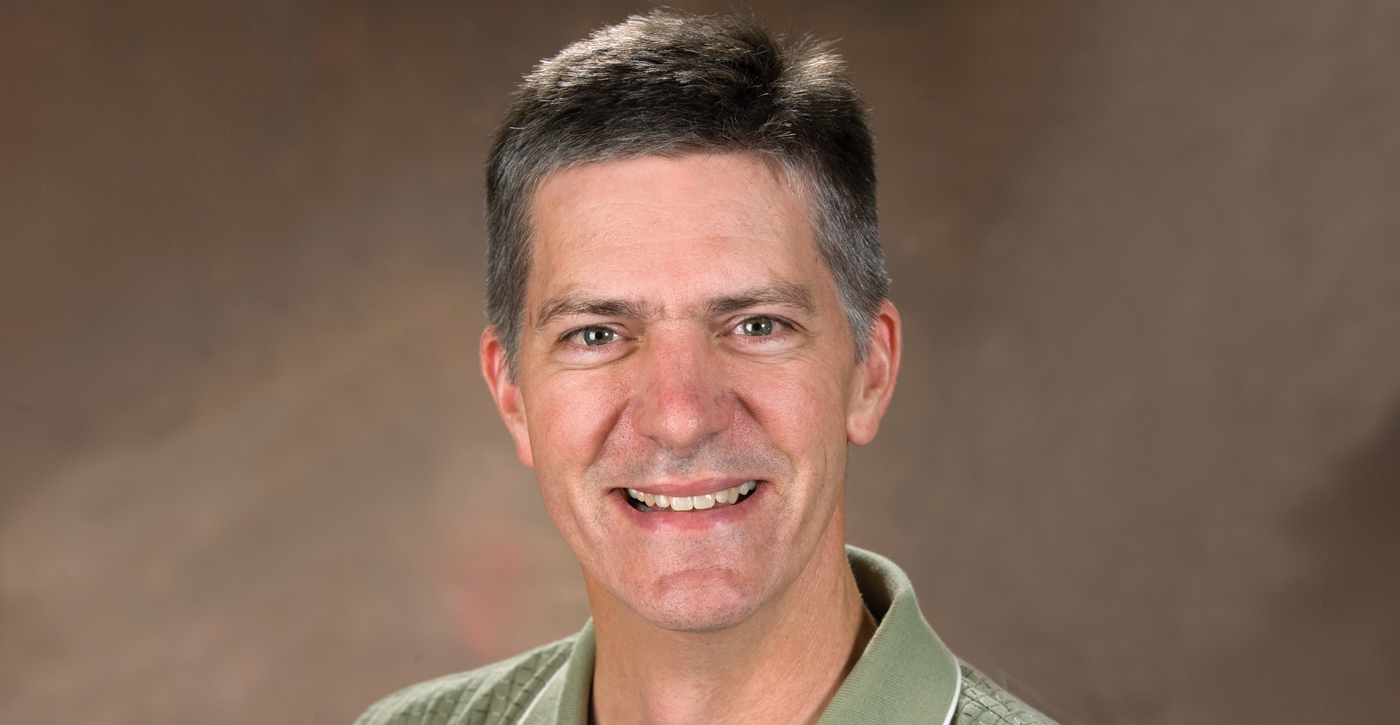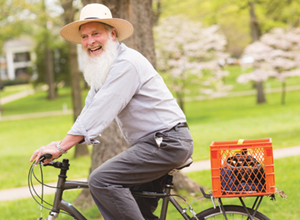Interim Ministry at New Garden Friends
There are a bunch of wires in my office at New Garden Friends Meeting. They come out of the ceiling, are attached to the wall at various points, and lead . . . nowhere. Some days this feels like the perfect metaphor to describe interim ministry.
I began as the interim pastor of New Garden Friends in Greensboro, N.C., in the fall of 2022. The meeting was grieving the loss of their previous pastor and struggling to come together after nearly two years of being separated by the pandemic. Like many Quaker meetings, the membership was aging; one of the sources of new membership has been the retirement homes next door. This brings in wonderful people . . . who are usually about 75 years old. The pastoral care needs in the community are high.
I first started paying attention to the wires in my office when I asked the House Committee if it would be possible to repaint the offices. The office administrator and I agreed that these rooms could use a fresh coat of paint, and it seemed like an innocuous request.
What I learned was that before we could paint the offices, the wiring had to be updated. Like many Quaker meetings, the building had expanded over the years. The part of the meetinghouse that included my office was built in the mid-twentieth century, but the “new” meetingroom was added in 1988. Rather than rewire the whole building, the new was added to the old. No one is entirely sure, but it’s probably not up to code.
This is true of many things in the meetinghouse, especially when it comes to technology. Rather than taking out the old systems, new ones were just added on top of the old.
This workaround only accelerated during the pandemic. Even though we have plenty of rooms in the meetinghouse, the tech office is located in a cramped space directly outside of my office. I learned that came about because, for a while, the meeting was putting wires outside the window to power the speakers and computers needed for Zoom worship. Even though we went back to worshiping inside, the tech office remained there. We designated a large office across the hall as the new tech room, but we can’t move the tech equipment until the wiring is fixed.
Some days I feel like just tearing those useless wires out of the ceiling so I won’t have to look at them anymore, but that wouldn’t solve the problem.
I was overjoyed when the meeting approved a complete tech upgrade. The meeting has committed to spending up to $48,000 to upgrade the audio-visual infrastructure in the meetingroom. This will include removing unused microphones and other out-of-date tech, installing remote-control cameras that can find and frame people bringing messages in open worship, improving the quality of sound for both in-person (especially hearing-impaired) and virtual participants, and updating the wiring. This past December, the tech team was finally able to move into their new office.
That may sound like a lot of money for a Quaker meeting to spend on technology, and it is. But I believe it is essential for this meeting. New Garden Friends Meeting has set a goal to continue virtual ministry into the future, reaching both those who worship in person in the meetingroom and those who worship online through Zoom and Facebook Live.
The virtual ministry of New Garden Friends began during the pandemic. Through its virtual ministry, the meeting has been able to connect with people who felt isolated from the support of the meeting—including those with illnesses, disabilities, physical separation, and transportation limitations—and with many others. The meeting now recognizes the importance of continuing to support these community members through its virtual ministry.
And this is not just for long-standing members who are now unable to attend in person. The meeting’s virtual ministry has attracted new people, some of whom have become members.
One of the challenges and opportunities for the meeting now is to find ways to integrate both in-person and online attenders fully into the life of the meeting. This is not simply a question of inviting the folks who worship online to come in person. And these are not entirely separate groups. Many members who regularly attend in person will come by Zoom when they are traveling or otherwise unable to be present in person.
This is just one aspect of what the meeting is considering during this interim period. There are many more. We are building capacity for leadership and mutual care by providing workshops on clerking and pastoral visitation. The meeting nominated a Transition Team, which has been listening deeply to the hopes and needs of members as they discern the community’s next phase, including what they would like in a new pastor. (One notable insight we uncovered on this point is that the meeting is searching for a pastor “who will empower the community to recognize that it has everything it needs.”) And we have been brainstorming ways to connect with the larger community, including the students at Guilford College, which is located across the street from the meetinghouse.
Some wonderful new programs have come out of this fertile interim time. Because I chose not to live in the parsonage next door, the meeting approved using the house as short-term housing for refugee families arriving in Greensboro. So far we have had families from Senegal, Afghanistan, and the Democratic Republic of the Congo. It has been a joy for the meeting to share its resources in this way.
New Garden Friends Meeting is in a time of transition, and it is not the only one. Many Friends meetings and churches are wrestling with similar issues: aging membership, how to integrate virtual and in-person worship, and whether to renovate old buildings and upgrade technology.
My role as an interim pastor is to work with the meeting to clarify where they have been, where they are now, and what they want for the future. Along with the usual duties of a pastor—such as bringing prepared messages, visiting those with pastoral care needs, managing staff, and leading memorials—I help them reflect on what is important now for this community.
This reflection, deep listening, and discerning priorities is essential work for both Friends who have pastors and those who do not. We need to discern where Spirit is calling us now and get rid of anything (including clutter and old wires!) that is getting in the way.






The old unused wires have a deep meaning in ministry. The transition is actually for the future. Thanks a lot.
Very interesting and timely essay pertinent to all of us, at home and in our Meeting Houses. Many of us, especially in New Jersey worship in
very old and historic buildings and making necessary upgrades in wiring and plumbing is a challenge, especially for smaller meetings. Also considering adaptations for older members is something to discuss, safety bars in lavatories for example. It would be helpful to hear more from other Meetings about how they are handling the challenge.
I would like to offer a suggestion regarding reaching out to students as well as faculty at Guilford College. Many years ago our meeting took place on the campus of Hobart and William Smith Colleges in Geneva, New York. As a former college chaplain, I decided to develop an outreach program to the students and faculty on campus. The first thing that I did was introduce myself to the editor of the student newspaper and told him that I wanted to place ads in the student newspaper. I came up with some very creative and inventive ads and worked with the student newspaper staff to get everything in place. As a result of those relationships I began to share my journey to the Quaker faith with students and invited them to attend services. The ads also brought students to our meetings. The interesting thing is that it brought students who had grown up in the Quaker tradition as well as students who were curious about the Quaker faith. As a result of the Religion Department at the colleges becoming aware of our presence, students began to attend the services in order to write papers about the Quaker faith and our meeting. Since you are right across the street from the college, it seems that this would be a great opportunity to reach out to them since they are so close. I hope my suggestion helps.
My first contact with Quakers was due to some very brief ads placed by two women from Santa Barbara meeting in the student newspaper at the University of California, Santa Barbara campus. After seeing several ads over a period of weeks, I finally visited a small evening meeting for worship in a room just off campus. That was way more than 50 years ago! I hope it still works!
Wise insight to sustain physical gatherings and grow online gatherings, hopefully with hybrid combinations of both to actively involve more people, and avoid excluding anyone who cannot attend for many good reasons.